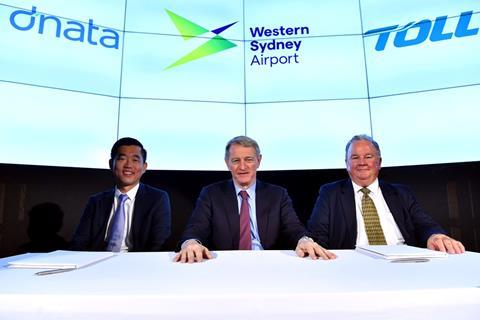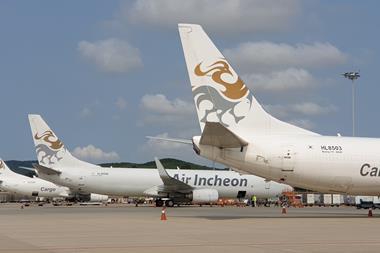
Western Sydney Airport has partnered with an additional two air cargo companies, dnata and Toll Group, to collaborate on the design of its new freight precinct, adding to the 10 companies already signed up.
Western Sydney Airport chief executive Graham Millett said the development will open up global markets to Australian exporters, supporting the economy of the New South Wales region.
"For freight companies, it’s an enticing proposition – we can offer landside and airside freight access on a greenfield site with 24/7 operations," he said. "Our partners can share with us what size facility they need, what technology they want and how they want it designed to optimise productivity."
"dnata is excited to partner with Western Sydney Airport in both shaping the future of freight and growing the freight market. This partnership enables [us ad] dnata to fulfil our strategy of providing the highest level of customer service, as well as offering the most innovative solutions to the market," dnata head of cargo Terence Yong said.
Toll Group general manager aviation Noel Prosser added: “As one of the leading operators of domestic airfreight in Australia, Toll is delighted to be sharing its expertise with Western Sydney Airport. We recognise the significant opportunity this new airport creates to service our customers and meet the demands of our freight operations.”
Western Sydney International is hoping the new cargo area will help it capitalise on the growing demand for Australia’s fresh produce abroad and create opportunities to export temperature-sensitive and perishable products.
Western Sydney Airport has also signed memoranda of understanding with 10 major freight companies including Australia Post (including StarTrack), DB Schenker, DHL Express, DSV Air and Sea, FedEx, Menzies Aviation, Swissport, Qantas Freight, Skyroad Logistics and Wymap.
The first stage of the Airport has the potential to process around 220,000 tonnes of air cargo each year through its proposed on-airport cargo facility, with multiple dedicated cargo aircraft stands.
This is set to scale up with demand, potentially handling 1.8m tonnes of air cargo each year in the future. Australian airports currently transport more than 1m tonnes of air cargo annually and this is forecast to grow considerably over the next decade.














